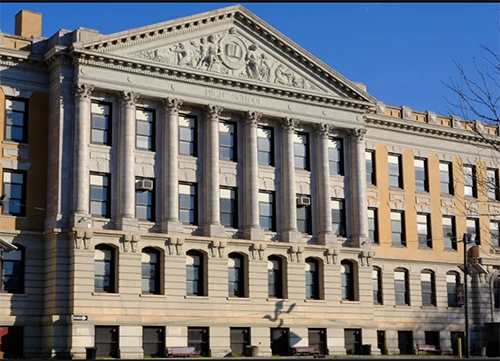
The Jersey City Public School district is in the process of implementing the most significant school investment in energy-saving improvements in state history — joining a program that will bring solar energy to 33 schools and save the district millions of dollars over the next 20 years.
As per the ESIP (Energy Savings Improvement Plan), Jersey City, one of the largest districts in the state, will realize $66 million in energy savings over the next 20 years. The plan includes adding HVAC (heating, ventilation, and air conditioning) to eight schools with poor ventilation, solar renewable energy for 33 schools, boiler replacements and conversions, upgraded roofs for 21 schools, and LED lighting for all schools. These approved measures will be substantially completed by September 2025 with an estimated value of $122 million.
Superintendent Norma Fernandez, Acting Business Administrator Dennis Frohnaphel, and Board President Natalia Ioffe call the project the most significant energy-saving plan in a school district across the state. The three district leaders said the project will not cost taxpayers anything.
"In my 30 years+ of industry experience, it has never been more exciting to see Jersey City Public Schools investing in a sustainable, greener future for students and staff," said Dr. Dennis, Acting Business Administrator of Jersey City Public Schools. "By partnering with DCO Energy and funding from American Rescue Plan (ARP) we are going to modernize the Districts facilities while reducing our energy and operational expenses. This is a win-win for everyone but most importantly for the students of Jersey City."
"This project is a testament to the sustainable and health safety priorities of Jersey City Public Schools. We are committed to providing a green, safe, and healthy learning environment to all students and staff," said Dr. Fernandez, Superintendent of Jersey City Public Schools. "Installing new HVAC equipment and solar panels will significantly improve indoor air quality and reduce emissions. This will allow the school district to redirect the funding into educational programs while improving the quality of classrooms for students."